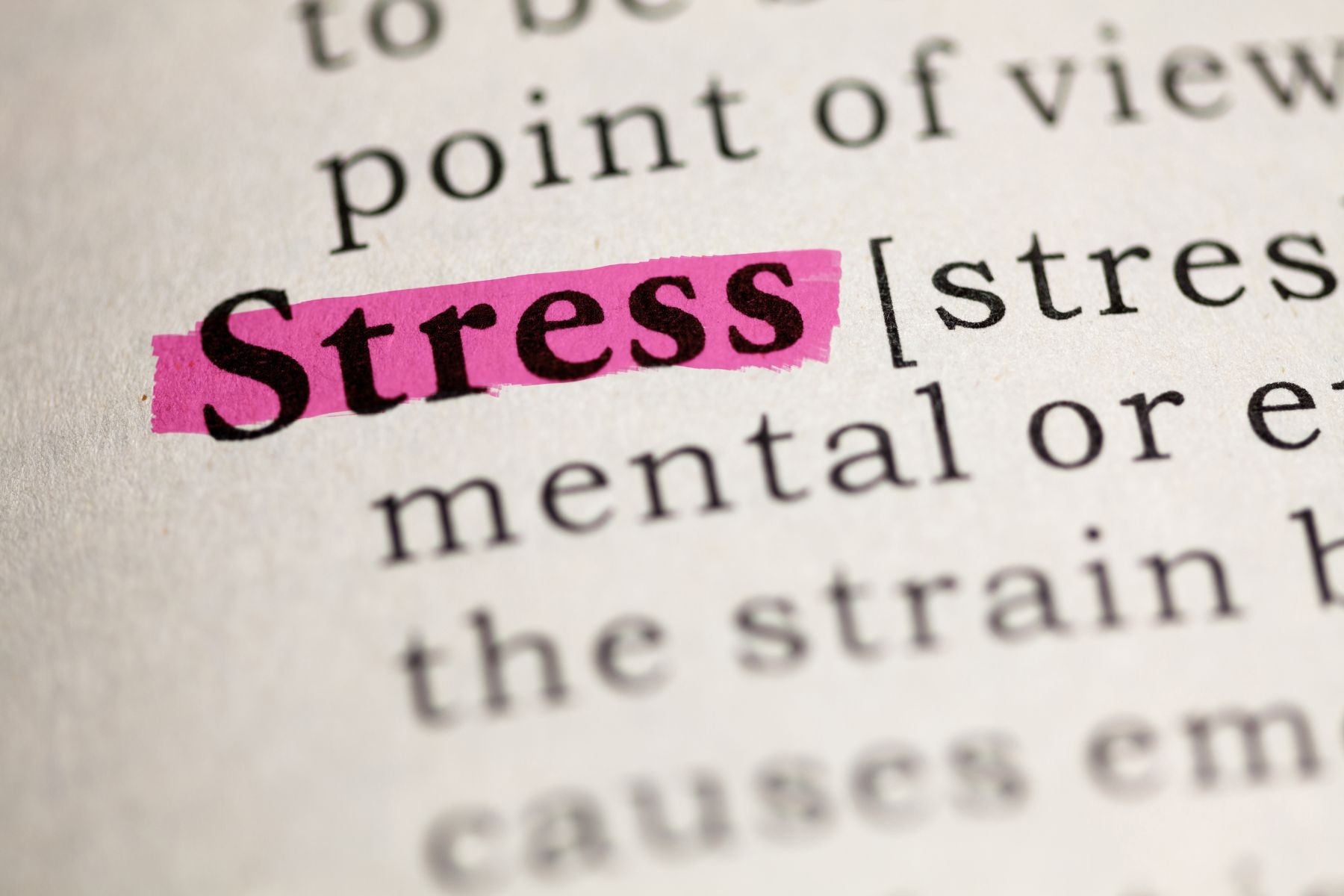How to recognise & reduce stress before the festive period
As the festive season approaches, many of us hope it will be a joyous time of connection and celebration. Yet, for many of us, it also brings heightened stress, anxiety and low mood. With financial pressures and social or family obligations – this can feel overwhelming.
With National Stress Awareness Day on the horizon, it’s the perfect moment to pause and reflect on how we can better support our mental wellbeing. The good news is that by recognising the early signs of stress and taking gentle and proactive steps now, you can protect your wellbeing and perhaps even enjoy this time! Glo's resident Mindfulness Trainer, Danny Jolly, explains how.
Spotting stress earlier
Stress doesn’t always announce itself loudly. It often sneaks in under the radar, showing up in subtle ways. Here are some tell-tale signs to look out for:
Psychological & emotional signs
- Feeling irritable, short-tempered or over-reacting
- Difficulty concentrating or making decisions
- More procrastination than usual
- Racing thoughts or constant worry
- Feeling anxious or overwhelmed
Physical signs
- Tension in the head and headaches, or jaw clenching
- Muscle tightness, especially in the shoulders, neck and forearms
- Tense, gripping in the abdomen / solar plexus region
- Shallow, irregular breathing predominantly through the mouth
- Fatigue or sleep disruption
- Rushing around on autopilot
- Being much more forgetful than usual
- Upset stomach or changes in appetite
If you notice these signs, it’s your body saying: slow down and take care of yourself. Practice tenderly saying to yourself in your own way – “Ah yes, stress is here” or “this is what stress feels like”; then “it’s ok, I can be with this”. This simple acknowledgement is the first step in helping our nervous understand what’s happening so the Amygdala, a region deep in our brain is less likely to sound the ‘alarm bell’, which floods our system with stress hormones.
Practical strategies to reduce stress before it peaks
The key here is early action. Here are some accessible, evidence-based strategies you can explore immediately:
-
Pause and breathe
When stress rises, our breath can be an anchor and friend. If it’s comfortable - sit, lie down or stand and explore bringing your attention and interest to the direct experience of breathing at a particular place in your body. Placing a hand on your lower abdomen or chest can help to feel into the sensations of the breath moving the body, quite literally keeping us alive. Feeling the natural duration of each in breath and out breath without trying to change anything.
Your mind is likely to wander off many times – bring it back with patience and friendliness – whilst noticing and gently suspending judgement of yourself. In this way, we’re building the muscle of mindfulness – the powerful simplicity of presence.
If you prefer, there are breathing exercises you can experiment with – like these NHS ones. Perhaps, investigate practicing these with the same curiosity, patience and kindness.
It’s important to say that bringing attention to breathing can be distressing for some of us, especially if trauma is involved. If this the case for you, it is not a problem - effective alternative suggestions are below.
-
Moving the body
Movement is medicine for stress. It doesn’t have to mean going to the gym – alternatively, explore:
- A brisk 10-minute walk
- Dancing to your favourite song
- Gentle yoga, Pilates, tai chi, qigong or simple stretching
- Gently shaking out your body, especially arms and legs. Adding an audible sigh helps
Experiment with doing this whilst maintaining your attention on the direct physical sensations in your body, as best you can – the touch, pulsing, tingling, twitching, vibration, tension, ease, looseness, warmth, coolness, the texture of clothing moving against your skin, the air against your face and hands, the movement of breath in your chest or tummy. Bring a child-like curiosity to this – as if you’re feeling your body for the first time.
-
Set healthy boundaries
The festive period can bring extra demands. Before saying “yes” to everything, pause and gently ask yourself:
Do I have the time, resources and energy for this?
How is this nourishing or depleting me?
What do I most need right now?
It really is ok to say no. Protecting your energy and wellbeing is an act of self-compassion. When we take care of ourselves, we’re more able to show care for others.
-
Practice gratitude
Gratitude and appreciation can shift our focus from what’s missing to what’s already present. Each morning or evening, write down three things you’re grateful for – start small, with what you might be overlooking. Notice what’s already here that’s good enough – the chair, sofa or bed being comfortable enough; readily available fresh running water from the kitchen tap; the temperature of your room being warm enough; the simple beauty of a tree; the smile of a friend or stranger. Let go of needing to feel gratitude or anything else at the time – instead, look upon this as a practice where you are cultivating gratitude and appreciation over time. Much like gardening, where we prepare, cultivate, water – then wait patiently and let nature do take its course. With practice, this boosts our mood and builds resilience.
-
Brief mindful pauses
- Build in short pauses during your day – notice the space you’re in with curiosity, as if seeing it for the first time – the colours, shapes, quality of light and sounds, the touch of a door handle or light switch
- Make a hot drink and enjoy it slowly - so you can tune into and receive the moment-by-moment sensory experience. The warmth of the cup, the aroma.
- Eat some mouthfuls of a meal or a snack mindfully. Bring your attention and curiosity to the direct experience of eating and drinking – take in the small stuff – the variety of colour and shape of the food, the tastes, touch (warmth, texture), smells and sounds of eating the food
- Listen to calming music, become curious and interested in the bare quality of the sound of each instrument – tone, pitch, volume, rhythm, patterns, timbre, vibration. Perhaps notice how each sound might actually be a bundle of individual sounds.
- Step outside for fresh air – using the same curiosity to tune into your environment and the direct sensory experience of it.
Spend more moments of the day, really living them – by using the miracle of your sensory experience and intentionally tuning into the direct experience of physical sensations, sounds, sights, smells and tastes.
Why mindfulness matters
With mindfulness we’re not trying to empty or clear the mind - it’s about noticing what’s here, with patient curiosity and friendliness. The more we practice, we come to see that we can make more space to allow our experience to be as it is and find peace in the midst of it all. Even a few minutes of mindful breathing or body awareness can reduce stress hormones and bring clarity.
It is said that we cannot be curious and anxious at the same time, so cultivating mindful curiosity is a natural antidote to stress and anxiety.
Next step
Stress, anxiety and low mood don’t have to steal your joy this season. Start small: pick one strategy from this list and try it today.
ENQUIRE WITH GLO TODAY
Author: Danny Jolly, MA - Mindfulness Teacher, Trainer and Coach
Professionally registered with The British Association of Mindfulness-Based Approaches





